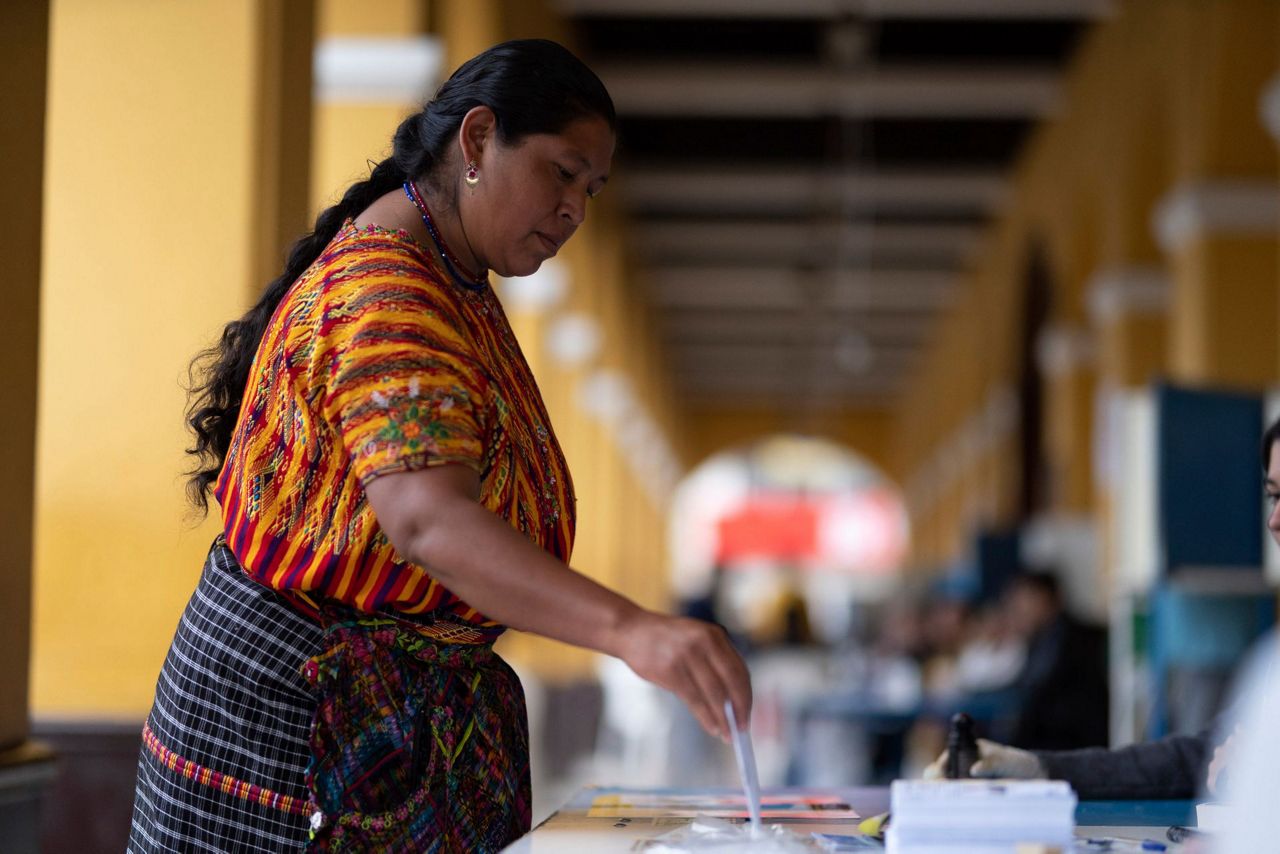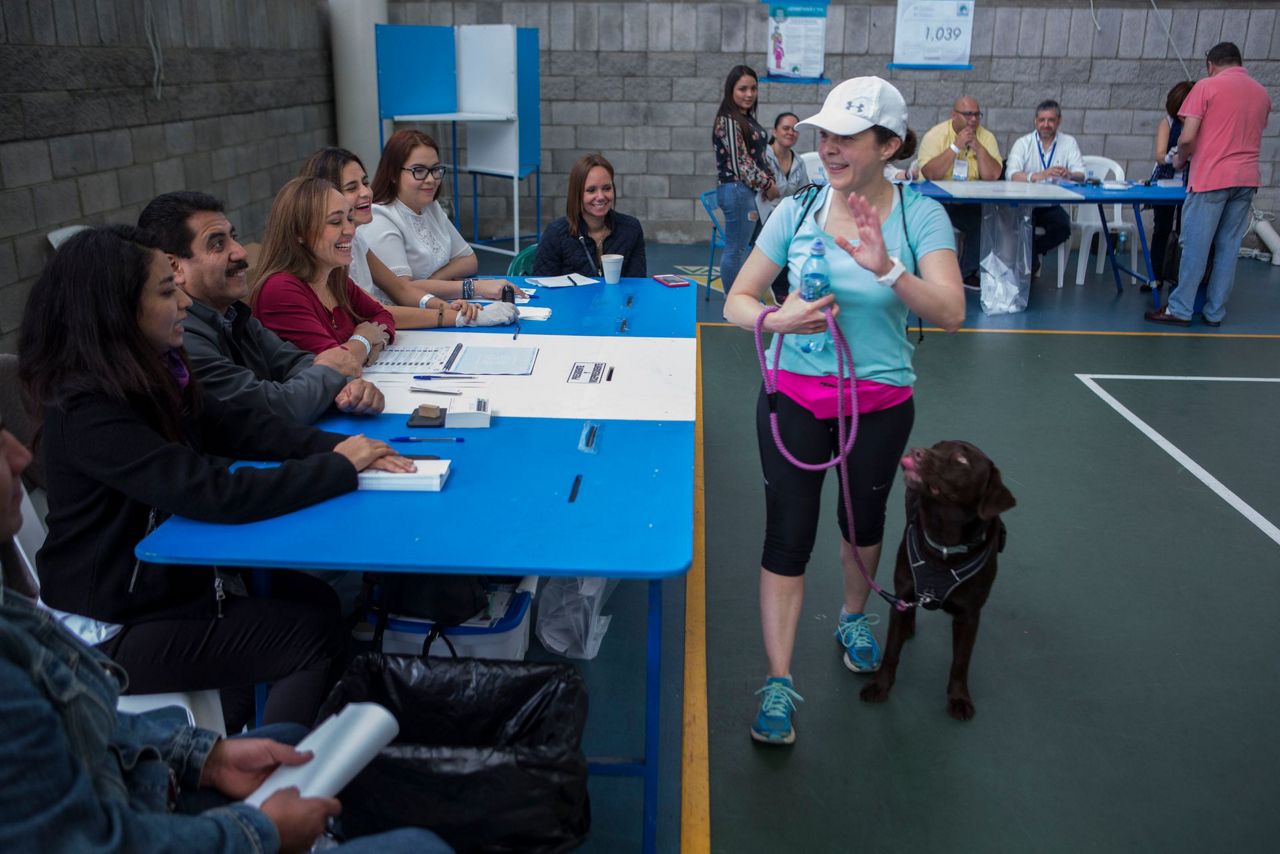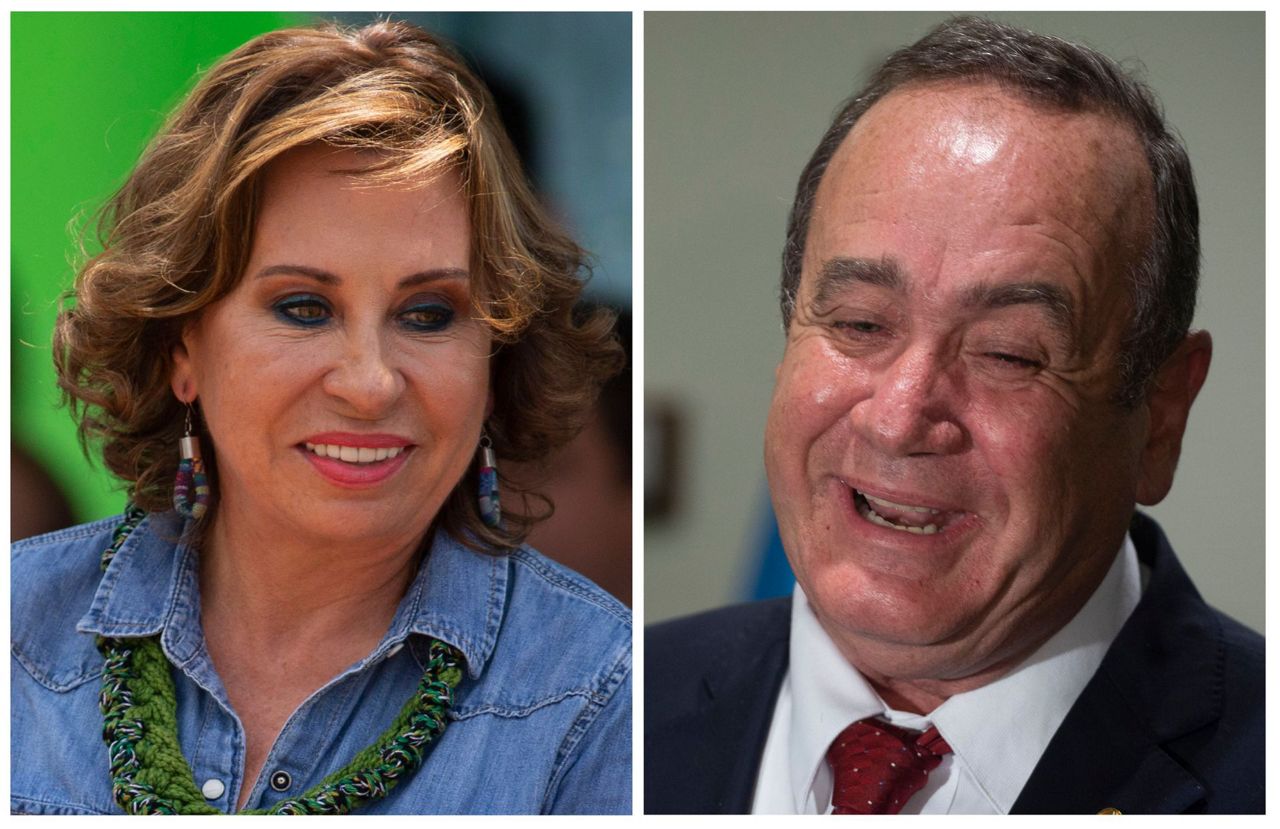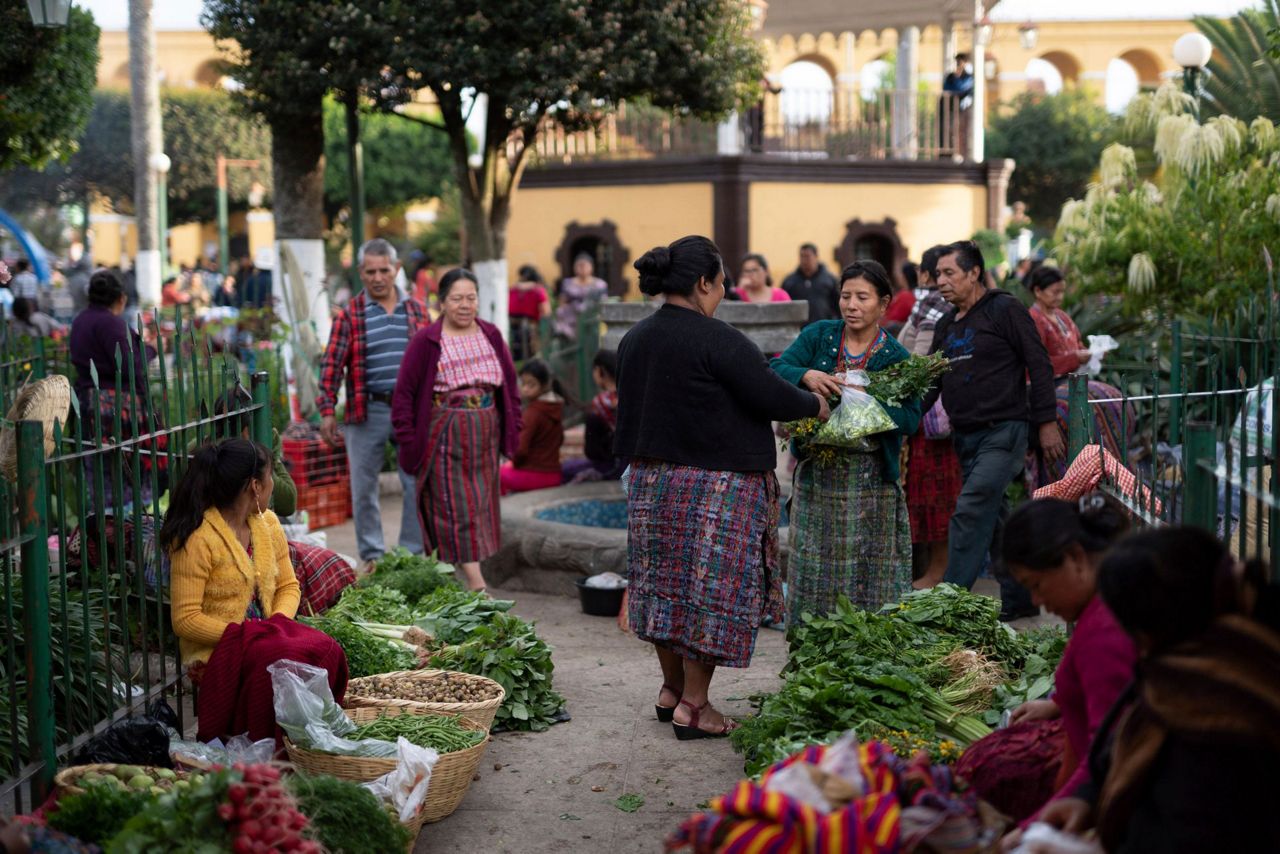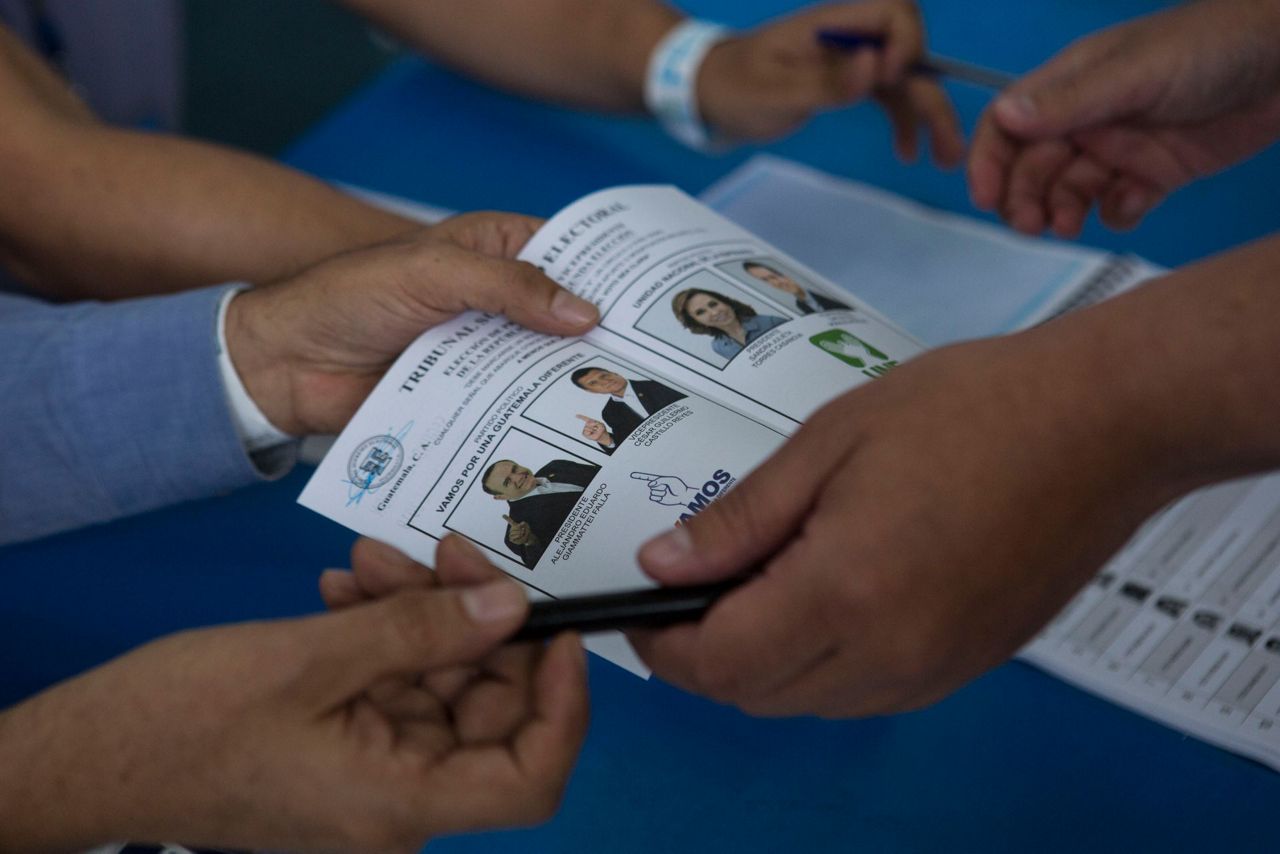GUATEMALA CITY (AP) — Conservative Alejandro Giammattei headed for an easy victory in Sunday's presidential runoff election, garnering favor with Guatemalan voters for his get-tough approach on crime and socially conservative values.
With about 95% of polling places reporting, the country's Supreme Electoral Council said late Sunday that Giammattei had about 59% of votes, compared to about 41% for former first lady Sandra Torres.
Turnout appeared to have been low, suggesting widespread disillusionment with the political status quo in a nation beset by corruption, poverty, unemployment and migration issues.
Running for the conservative Vamos party, Giammattei was making his fourth bid for the presidency. The 63-year-old doctor, who uses crutches because he has multiple sclerosis, stridently opposes gay marriage and abortion and endorses family values and the death penalty.
"We won. We are very excited, it is logical, it has been 12 years of struggle," Giammatttei said in an emotional speech declaring victory. "Twelve years waiting to serve my country."
Torres was married to — and later divorced — former President Álvaro Colom (2008-2012), but has a record of her own as a businesswoman, having run a textile and apparel company.
Her campaign platform had focused on improving education, health care and the economy. She also proposed an anti-corruption program, but her Unity for Hope party has come under fire because some of its mayoral candidates have been accused of receiving contributions from drug traffickers for their campaigns.
Oscar Argueta, the general secretary of Torres' party, conceded defeat.
About 8 million Guatemalans are registered voters, but turnout might have fallen to as low as 42%, amid widespread disappointment with the administration of outgoing President Jimmy Morales.
Guatemala City resident Leonel Regalado said "I just hope Giammattei keeps his promises, and really fights corruption."
"We hope he won't steal, because that would be too much, for him to steal as brazenly as Jimmy Morales has done," Regalado said.
Rogelio Estrada, a father of two, was one of the first people to vote at a polling station in Guatemala City. He also said corruption was his main concern.
"Whichever of the two wins, they should focus on combatting corruption, because this administration (of current President Jimmy Morales) has been robbing us," he said. "And whoever wins should focus on crime and employment, to keep more Guatemalans from going to the United States."
The country's general elections were held June 16, but no presidential candidate won the necessary votes to assume the post after the first round.
The new president is to take office Jan. 14 and will face the task of attempting to stem the large flow of migrants headed toward the United States. At least 1% of Guatemala's population of some 16 million has left the country this year.
On July 6, Morales' administration signed an agreement with the United States that would require Salvadorans and Hondurans to request asylum in Guatemala if they cross through the country to reach the U.S. The new president will have to decide whether to nullify or honor the agreement, which could potentially ease the crush of migrants arriving at the U.S. border.
In addition to migration, Guatemalans have said they are concerned about crime, unemployment, the rising costs of living and entrenched corruption.
Three of the last four elected presidents have been arrested after leaving office on charges of graft, and Morales himself decided to disband and bar a U.N.-supported anti-corruption commission after he became a target for alleged campaign finance violations.
The campaign was marked by a chaotic flurry of court rulings, shenanigans, illegal party-switching and allegations of malfeasance that originally torpedoed the runs of two of the three presidential front-runners.
"The person who wins will have to lead a country that is viewed as a nation losing ground in the battle against corruption, because the mandate of the anti-corruption commission wasn't renewed," said Ricardo Barreno, a political science professor at the Central American Institute of Political Studies.
Copyright 2019 The Associated Press. All rights reserved. This material may not be published, broadcast, rewritten or redistributed.







